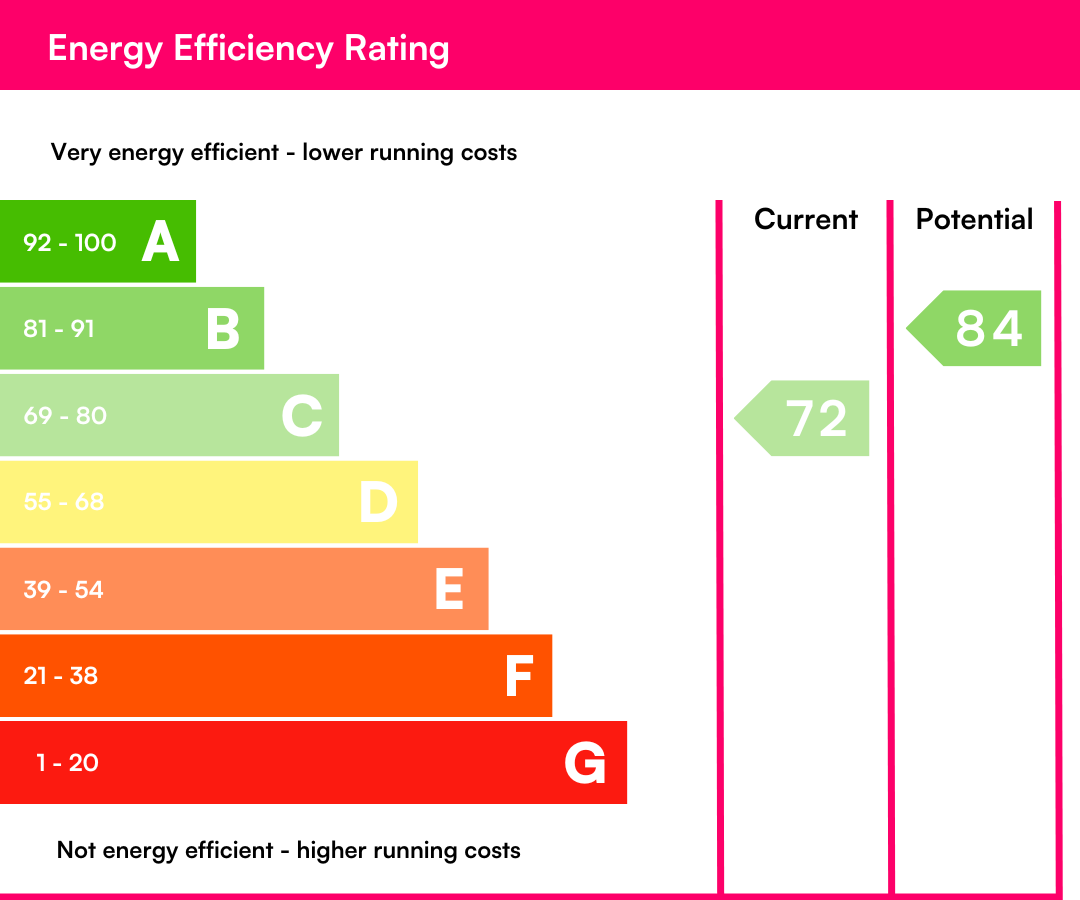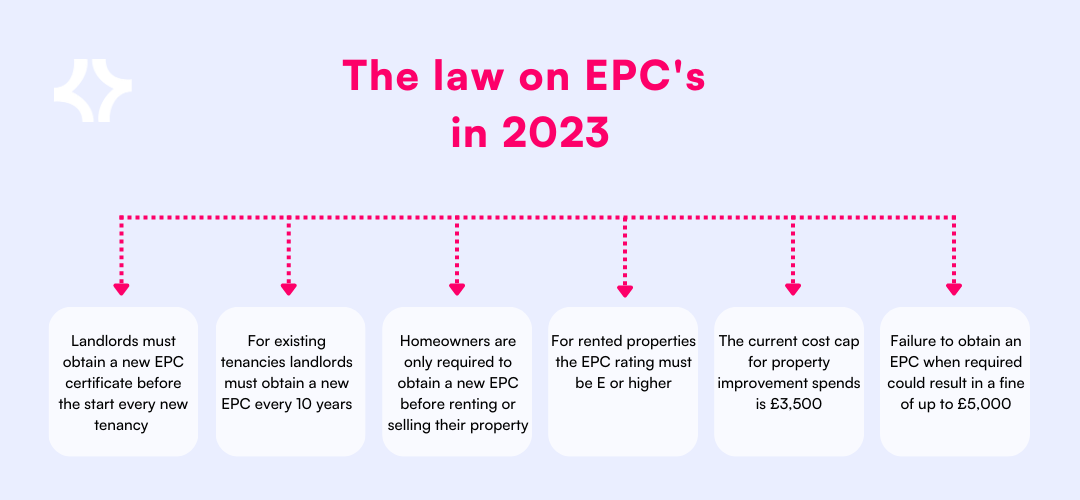If you own a home or rental property, it’s important to stay informed on EPCs and potential regulation changes. Looking for an easy way to get the information? This blog has all the details you need about present legislation and what we can expect in terms of updates moving forward.
What is an EPC?
An Energy Performance Certificate (EPC) is a document that provides information about the energy efficiency of a building or a property.
The EPC provides a rating of the energy performance of a building on a scale of A to G, with A being the most efficient and G being the least efficient. The rating is based on factors such as insulation, heating systems, lighting, and the use of renewable energy sources.
The purpose of an EPC is to help property owners, tenants, and buyers understand the energy efficiency of a building and its potential energy costs. The EPC also includes recommendations for improvements that can be made to increase the energy efficiency of the building, such as installing better insulation or upgrading to a more efficient heating system.

Who is responsible for the EPC?
It is the responsibility of the property owner or landlord to obtain an EPC for their property and to make it available to prospective buyers or tenants. Failure to obtain an EPC when required can result in a fine of up to £5,000.
How often do landlords need to get an EPC?
Landlords must adhere to the legal requirements of conducting an energy assessment prior to each new tenancy, or every 10 years for ongoing tenancies. Upon signing their lease agreement, tenants are then given a copy of the resulting certificate – providing them with helpful clarity on how efficient and sustainable the property is.
Do homeowners need EPC’s?
If you’re a homeowner looking to sell or rent out your property, an EPC is essential. That being said, if you plan on residing in the house yourself it’s not necessary to renew yours every 10 years as landlords do. Some homeowners still opt for a new assessment however so they can benefit from improved energy efficiency and performance around their home.
What EPC rating do you need to sell a property?
When it comes to selling your home, there are no legal minimum rating requirements. However, homes that are energy-efficient tend to be more attractive to buyers and can help speed up the sale process – making suggested improvements based on recommendations in an EPC certificate could save you time and money in the long run.
What are the current EPC laws for rented properties?
In 2023 the law requires landlords to ensure their rental units maintain a rating of E or above. If the property scores an F or G, improvements such as insulation, double glazing and heating system upgrades are necessary – but not without cost! Fortunately for the landlord there is a cost cap on how much must be spent which currently stands at £3,500.

Are the EPC laws changing in 2025?
In 2025, the minimum Energy Performance Certificate (EPC) rating requirement is likely to increase from E up to C – affecting a whopping 40%+ of properties! What’s more, cost caps for improvements could skyrocket from £3,500 all the way up to £10,000 in the governments drive towards a net zero future.
How to improve your properties energy efficiency
First you should take a look at your existing certificate. On it you’ll see two charts – one that illustrates where you stand currently, and another with potential improvements as suggested by the experts, these improvements could be:
- Improve insulation
- Install double glazing
- Upgrade heating system
- Improve ventilation
With the ever changing landscape of energy efficiency regulations and emerging technologies, staying informed is key for homeowners and landlords. Thankfully we’re on the ball when it comes to laying down the facts – to learn more read our EPC report today to see the data.

